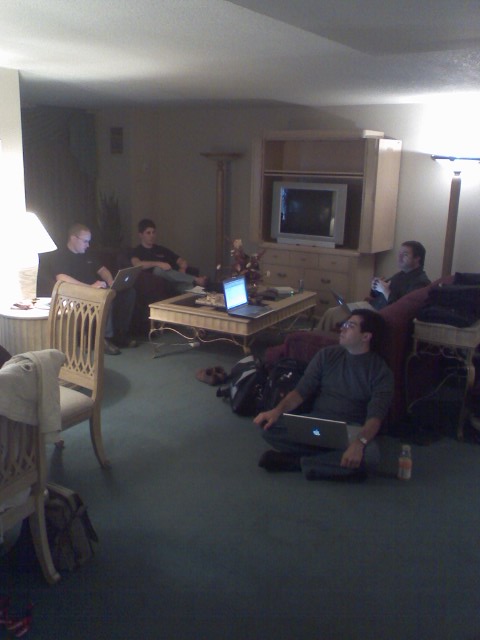I got back from Salt Lake City this afternoon brought a lot of ideas with me. The talks were really informative and thought-provoking and I made some great connections.
I'm also officially a beta tester for PicLens, a great plugin for Firefox. They're up for a Webware award this year, so if you use the plugin (and if you don't, you should get it) you should vote for them.
I've somehow managed to sneak out of Rookie Orientation thus far, but my luck has run out and I've got to go this week. Naturally, work doesn't stop when this happens so I'll be pulling double duty until Friday.
My boss invited me to go to Rails Conf this summer in Portland so I've also got to review the talk schedule and see if it will be interesting. I'm pretty sold on Merb, and look forward to Rubinius, but it may be good to go nonetheless.
One of the things I've been experimenting with this weekend is binding the GNU debugger (gdb) to a running Ruby app. It produces much more informative stack traces, and allows you to see the C stack trace as well. Of course there's more information there than I can process at this point, but there's always room for learning. More on this later.
Well, I've got to hit the hay and learn about being 'fanatical' tomorrow.

